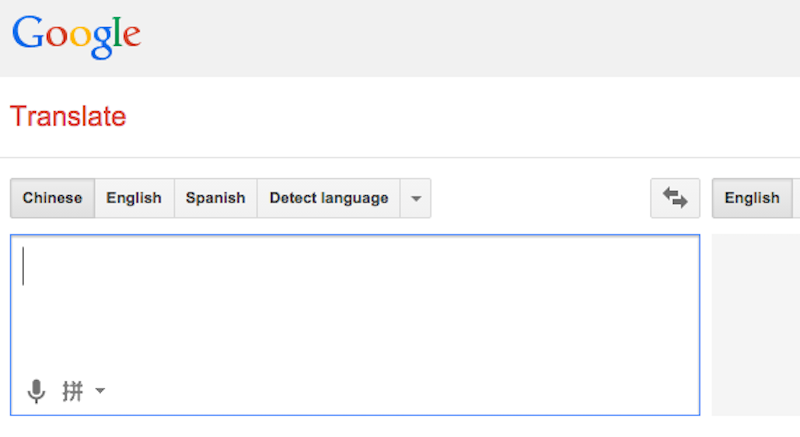Topic translate cantonese to english: Discover the best tools and techniques to translate Cantonese to English effortlessly, enhancing communication and breaking down language barriers in a digital age.
Table of Content
- How to translate Cantonese to English?
- Top Online Tools for Cantonese to English Translation
- Using Google Translate for Cantonese to English Conversion
- Free Cantonese to English Translation Services
- Advanced Features in Online Translation Tools
- DeepL Translate: High Accuracy Cantonese to English Translations
- Real-Time Translation Apps for Instant Communication
- YOUTUBE: Beginner\'s Cantonese Lesson by Real Hongkongers
- Enhancing Translation with Dictionaries and Glossaries
- Specialized Cantonese to English Translation for Documents and Audio
- Community and Learning Resources for Cantonese Speakers
- Professional Translation Services vs. Free Online Tools
How to translate Cantonese to English?
To translate Cantonese to English, you can follow these steps:
- Go to a reliable online translation website or use a translation app.
- Search for the option to translate from Cantonese to English.
- Enter the Cantonese text you want to translate into the provided text box.
- Click on the \"Translate\" button or press enter to initiate the translation process.
- Wait for the translation to be processed.
- Review the translated text in English provided by the website or app.
- If necessary, copy the translated text and paste it into another document or application.
Note that the accuracy of machine translations can vary, so it\'s always a good idea to double-check the translation, especially for complex sentences or specialized vocabulary.
READ MORE:
Top Online Tools for Cantonese to English Translation
Whether you\"re a student, a professional, or simply curious, these online tools offer seamless Cantonese to English translation services to meet all your needs:
- Google Translate: A versatile tool that supports text, speech, and document translations, making it ideal for quick translations and understanding general content.
- Microsoft Bing Translator: Known for its accuracy and the ability to translate web pages directly, it\"s perfect for browsing Cantonese websites in English.
- DeepL Translator: Offers high-quality translations with a focus on context and nuance, suitable for translating formal documents and detailed texts.
- Papago: A user-friendly app that specializes in conversational and slang translations, ideal for everyday conversations and understanding local expressions.
- Yandex Translate: Provides comprehensive translation services, including text, website, and image translations, for versatile language learning and translation needs.
Each of these tools comes with unique features such as voice recognition, text-to-speech, and language detection, enhancing your translation experience. While online translators are incredibly useful, remember the importance of cross-checking with native speakers or professionals for critical translations.
Using Google Translate for Cantonese to English Conversion
Google Translate is a powerful tool for anyone looking to convert Cantonese into English. Here\"s how to make the most of it:
- Access Google Translate: Visit the Google Translate website or download the app on your mobile device for on-the-go translations.
- Choose Languages: Select Cantonese as the source language and English as the target language from the dropdown menus.
- Input Text: You can type text directly, paste text, or use the handwriting feature to input characters. For website translations, simply enter the URL.
- Listen to Pronunciation: Click the audio icon to hear the translated text in English, which is great for learning pronunciation.
- Document Translation: Google Translate allows you to upload documents in various formats (e.g., .docx, .pdf, .pptx) for direct translation.
- Use Conversation Mode: For real-time verbal translations, use the conversation mode to facilitate bilingual discussions.
- Download Translations: Save translations for offline access, particularly useful when traveling or in areas without internet access.
While Google Translate offers convenience and accessibility, it\"s important to be mindful of cultural nuances and idiomatic expressions, which may not always be accurately captured in automated translations. For formal or critical translations, consulting a professional translator is recommended.
Free Cantonese to English Translation Services
Breaking language barriers doesn\"t have to cost a fortune. Here are some top free services for translating Cantonese to English:
- Google Translate: Highly accessible and easy to use, it provides instant translations for text, speech, and documents.
- Microsoft Bing Translator: Offers reliable translations with the added benefit of translating entire web pages directly from your browser.
- Yandex Translate: A comprehensive tool that supports text, website, and image translations, catering to a wide range of translation needs.
- Papago: Specializes in conversational translation, making it ideal for everyday use, with support for text and speech translations.
- HiNative: While not a direct translation service, this community-based app allows you to ask language and translation questions to native speakers worldwide.
These services are great for casual translations, travel, learning, or understanding the gist of documents and conversations. However, for legal, medical, or official documents, consider using professional translation services to ensure accuracy and nuance.
Advanced Features in Online Translation Tools
Modern online translation tools are equipped with features that go beyond basic text translation, offering a more nuanced and effective communication experience:
- Voice Recognition: Speak directly into your device for instant translation, perfect for conversations and quick translations on the go.
- Text-to-Speech: Listen to translations out loud, aiding in pronunciation and comprehension of the target language.
- Image Translation: Upload or capture photos with text to be translated, ideal for menus, signs, and documents.
- Language Detection: Automatically identifies the language being used, simplifying the translation process when the source language is unknown.
- Conversation Mode: Engage in bilingual conversations with a real-time translation feature that alternates between the languages spoken.
- Offline Translation: Download language packs for translations without an internet connection, essential for travelers.
- Document Translation: Translate entire documents while retaining original formatting, useful for official and formal documents.
- Multi-Platform Support: Access translations across various devices, ensuring seamless communication regardless of your device.
These advanced features enhance user experience, making it easier to navigate through language barriers with confidence. Despite these advancements, users should remember the importance of context and cultural nuances, which might not always be accurately captured by automated tools.
_HOOK_
DeepL Translate: High Accuracy Cantonese to English Translations
DeepL Translate stands out for its exceptional accuracy and understanding of linguistic nuances, making it a top choice for Cantonese to English translations:
- Advanced AI: Utilizes the latest in artificial intelligence to provide translations that capture the essence and context of the original text.
- Contextual Understanding: Goes beyond literal translations by considering the context of sentences, ensuring that the meaning is preserved.
- Language Support: While DeepL supports a variety of languages, its technology ensures high-quality translations for Cantonese to English, catering to both simple and complex text.
- User Interface: Offers a clean, intuitive interface that makes translation easy for both casual users and professionals.
- Data Privacy: Ensures that your translations are secure and private, an important consideration for sensitive or confidential materials.
- Glossary Feature: Allows users to define specific translations for certain terms, ensuring consistency across documents and projects.
- API Access: Provides access to its translation engine via an API, enabling developers to integrate high-quality translations into their own applications or websites.
DeepL\"s emphasis on quality and context makes it particularly suited for academic, professional, and technical translations where precision is paramount. While it excels in accuracy, users should still consider final proofreading by native speakers for public or official documents.

Real-Time Translation Apps for Instant Communication
In today\"s fast-paced world, real-time translation apps have become indispensable tools for breaking down language barriers instantly. Here are some of the top apps for translating Cantonese to English in real time:
- Google Translate: Offers a conversation mode where Cantonese and English speakers can communicate seamlessly in real-time.
- Microsoft Translator: Features live conversation features, text translations, and even multilingual group chat options.
- iTranslate Voice: Provides voice-to-voice translations, making verbal communication across languages effortless and accurate.
- SayHi Translate: Focuses on voice translation to facilitate fluid and natural conversations between different language speakers.
- Translate Me: Allows for real-time voice and text translations, supporting one-on-one conversations and group discussions.
These apps are equipped with voice recognition and instant translation technologies, making them perfect for travelers, international business, and anyone looking to connect across languages. While they provide a high level of convenience, for critical communications, it\"s advisable to double-check translations for accuracy.

Beginner\'s Cantonese Lesson by Real Hongkongers
Calling all Hongkongers! This video is an absolute must-watch for you! Discover the incredible stories, resilience, and vibrant culture of Hongkongers as they navigate through daily life. Get ready to be inspired and connect with your roots like never before.
Translating Cantonese to English with Google Translate
Say goodbye to language barriers with Google Translate! This incredible video will show you how this innovative tool can revolutionize the way you communicate and explore different cultures. Get ready to have your mind blown and start exploring a world without limitations. Don\'t miss out!
Enhancing Translation with Dictionaries and Glossaries
Integrating dictionaries and glossaries into the translation process can significantly enhance the accuracy and quality of Cantonese to English translations. Here\"s how these resources can be effectively utilized:
- Specialized Dictionaries: Use specialized dictionaries that focus on specific fields such as legal, medical, or technical terms to ensure precise translations.
- Online Glossaries: Refer to online glossaries that list common phrases and expressions, including idiomatic language and slang, for more natural translations.
- Custom Glossaries: Create your own glossary for specific projects or subjects to maintain consistency across translations, especially useful for businesses and academic research.
- Language Learning Apps: Utilize language learning apps that include dictionary and glossary functions to understand the context and usage of words and phrases better.
- Integration with Translation Tools: Some translation software allows the integration of custom dictionaries and glossaries, enhancing the tool\"s effectiveness and accuracy.
By leveraging these resources, translators and language learners can achieve a deeper understanding of nuances, ensuring that translations are not only accurate but also contextually appropriate and culturally sensitive.

Specialized Cantonese to English Translation for Documents and Audio
When it comes to translating documents and audio from Cantonese to English, specialized services offer unparalleled accuracy and sensitivity to context:
- Document Translation Services: Professional services that handle legal, medical, technical, and business documents, ensuring that the translation is accurate, culturally relevant, and terminologically correct.
- Audio and Video Translations: Services that provide transcriptions and translations of audio and video content, including interviews, lectures, and multimedia presentations.
- Localization Services: These services go beyond simple translation to adapt content culturally and contextually for the target audience, ensuring that it resonates well with English speakers.
- Technical Translation: For industry-specific documents that require a deep understanding of the subject matter, technical translation services employ experts in the field.
- Subtitling and Dubbing: Specialized in converting Cantonese audiovisual content into English with subtitles or dubbing, maintaining the original tone and intent.
Utilizing specialized translation services ensures that your documents and audio are not only translated accurately but also retain the original message\"s nuance and intention. This approach is particularly important for content that will be published or used in professional settings.

Community and Learning Resources for Cantonese Speakers
For Cantonese speakers aiming to master English or enhance their translation skills, a wealth of community and learning resources are available:
- Language Exchange Platforms: Websites and apps where you can partner with English speakers looking to learn Cantonese, benefiting both parties through mutual learning.
- Online Forums and Social Media Groups: Join communities dedicated to language learning, where you can ask questions, share resources, and practice with native speakers.
- Educational Websites: Access free and paid courses tailored to Cantonese speakers, ranging from beginner to advanced levels of English.
- Mobile Apps for Language Learning: Utilize apps designed for learning English, featuring lessons, games, and quizzes to improve your language skills in a fun and interactive way.
- YouTube Channels: Follow educators and language learners who share tips, lessons, and cultural insights that can enhance your understanding and fluency.
- Language Learning Podcasts: Listen to English learning podcasts aimed at Cantonese speakers, which you can incorporate into your daily routine for passive learning.
- Books and Literature: Reading books in English, starting with simple texts and gradually advancing to more complex materials, can significantly improve your language skills.
Engaging with these resources can provide immersive learning experiences, practical knowledge, and valuable cultural insights, making the journey of learning English more enjoyable and effective for Cantonese speakers.

_HOOK_
READ MORE:
Professional Translation Services vs. Free Online Tools
Choosing between professional translation services and free online tools depends on your needs, the complexity of the task, and the required accuracy level. Here\"s a comparison to help you decide:
- Accuracy and Quality: Professional services offer higher accuracy, especially for complex texts and nuances. Online tools are improving but may still struggle with context and idioms.
- Cost: Online tools are generally free or have minimal costs for advanced features, making them accessible for everyday needs. Professional services, due to their expertise, come at a higher price.
- Turnaround Time: Free online tools provide instant translations, suitable for on-the-spot needs. Professional services take longer, given the human involvement, but ensure thoroughness and quality.
- Confidentiality: Professional services often guarantee confidentiality, making them preferred for legal, medical, or business documents. Online tools may not offer the same level of security.
- Customization: Professional translators can adapt to specific project requirements, styles, and tones, offering a personalized approach. Online tools offer limited customization options.
- Scope: For general, non-critical translations or learning, online tools are sufficient. Professional services are essential for legal, technical, and official documents where precision is critical.
Ultimately, the choice between professional translation services and free online tools should be based on the project\"s nature, the importance of accuracy, and available budget. For critical and complex tasks, professional services are the go-to option, while free online tools can suffice for everyday translation needs.
Embracing the power of translation can bridge the gap between Cantonese and English, opening doors to global communication, cultural exchange, and endless learning opportunities.





